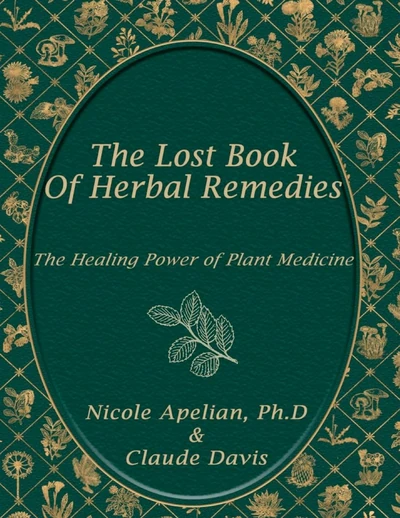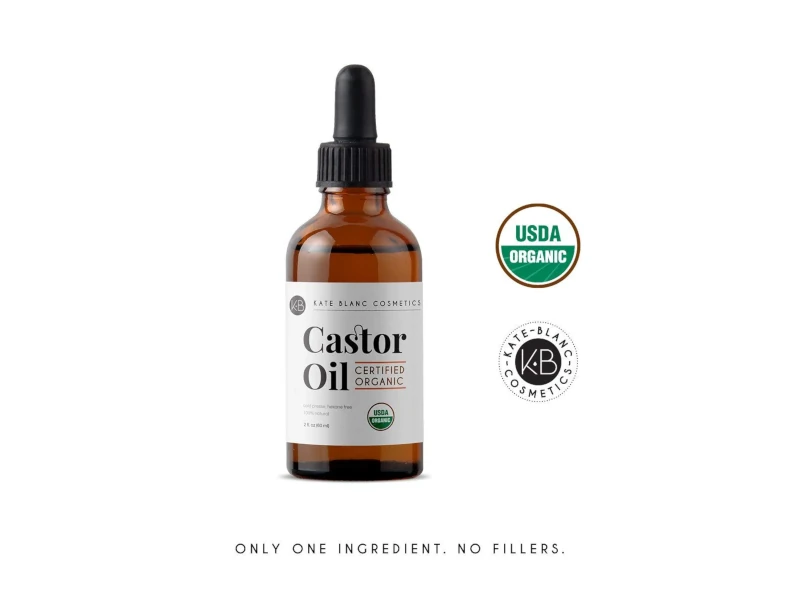The Ultimate Guide to Castor Oil: Benefits, Uses, and Precautions
Separating Castor Oil Fact From Fiction
Castor oil, a yellowish liquid derived from the castor bean plant (Ricinus communis), boasts a rich history spanning thousands of years. Ancient civilizations harnessed its versatile nature for various purposes, including fuel for lamps and medicinal applications3. In recent times, castor oil has experienced a surge in popularity thanks to social media trends, with proponents touting a wide array of purported castor oil benefits.

However, amidst the flurry of online claims, it’s crucial to distinguish evidence-based facts from unfounded hype. This comprehensive guide will explore the genuine benefits and uses of castor oil, separating truth from fiction and providing reliable information to make informed decisions about its potential role in your health and wellness routine.
What is Castor Oil?
Castor oil is a vegetable oil obtained by extracting oil from the seeds of the castor oil plant (Ricinus communis). The extraction process typically involves pressing the seeds to release the oil.
Castor oil is a distinctive oil known for its thick, viscous consistency and pale yellow hue167. It’s generally odorless.
The unique properties of castor oil are largely attributed to ricinoleic acid, a monounsaturated fatty acid that constitutes approximately 90% of the oil. Ricinoleic acid is known for its anti-inflammatory and moisturizing properties, contributing significantly to the oil’s various applications in health, wellness, and industry.
1. Castor Oil Benefits and Uses
While castor oil has a long history of use for various ailments, many of the purported benefits lack rigorous scientific backing and are largely based on anecdotal evidence. Social media trends have contributed to the spread of misinformation regarding castor oil as a cure-all. The sources emphasize the need to approach these claims with caution and rely on evidence-based information.
This section will examine some of the common uses of castor oil, highlighting those supported by scientific research and debunking myths perpetuated online.
Castor Oil for Constipation

The U.S. Food and Drug Administration (FDA) has approved castor oil as a safe and effective stimulant laxative for the relief of temporary constipation. This makes it the oil’s only legitimate health-related use.
Castor oil benefits people experiencing constipation because it contains ricinoleic acid. Once digested, the body breaks down castor oil into ricinoleic acid3. This acid then attaches to receptors in your intestines, causing muscle contractions that help you have a bowel movement.
However, sources caution against overuse. While effective for short-term relief, long-term or excessive use of castor oil can lead to chronic constipation and other unpleasant side effects.
If you’re experiencing constipation, consider these alternative solutions before turning to castor oil:
- Increasing fiber intake: Include plenty of fruits, vegetables, and whole grains in your diet.
- Hydration: Drink plenty of water throughout the day.
- Exercise: Regular physical activity can help stimulate bowel movements.
If these lifestyle changes don’t provide relief and you need a laxative, sources suggest over-the-counter options containing senna or polyethylene glycol6. If you are struggling with chronic constipation, talk to a healthcare professional instead of trying to treat it at home.
2. Castor Oil for Skin

Castor oil is a popular ingredient in many cosmetics and skincare products due to its moisturizing properties. The ricinoleic acid in castor oil acts as a humectant, meaning it attracts and retains moisture in the skin, making it feel softer and smoother.
Some people believe that castor oil benefits wound healing. Castor oil uses include being an additive in wound dressings like Venelex, which is used to treat acute and chronic wounds. The sources note that castor oil may help create a moist environment that’s conducive to wound healing and may have antibacterial properties as well.
Despite its popularity, the sources caution that there is limited scientific evidence to support claims about castor oil treating specific skin conditions, such as acne.
Using pure castor oil directly on your skin can cause irritation and allergic reactions, such as contact dermatitis. To avoid this, it’s crucial to perform a patch test before using castor oil for skin. Apply a small amount to a small area of your skin and wait 24 hours to check for any adverse reactions. If no reaction occurs, it is generally recommended to dilute castor oil with a carrier oil, such as coconut oil, before applying it to larger areas of skin.
3. Castor Oil for Hair

Many people use castor oil for hair. They believe it will make their hair shinier and help it grow faster. Some people use it as part of a hair care routine. The Castor Oil sold online and offline confidently claims hair growth. Even for the growth of eyelashes and eyebrows.
While castor oil is an ingredient in some hair care products, there’s no evidence that applying pure castor oil to your hair promotes growth or reduces hair loss. There’s also no scientific evidence that castor oil is effective at treating dandruff.
In rare cases, applying castor oil to hair can actually lead to acute hair felting. This scalp disorder causes hair to become hard, tangled, and matted. It often cannot be treated, and the hair must be cut off.
People with long hair should be cautious when using castor oil as a hair treatment. For promoting hair growth, rosemary oil has been scientifically shown to be more effective. The best “growth serum” for hair is patience and proper hair care. If you are experiencing hair loss or thinning, you should see a doctor to rule out illness or nutrient deficiencies.
Debunking Other Castor Oil Myths
Some people on social media sites like TikTok are spreading inaccurate and even dangerous claims about castor oil, including the idea that it is a cure-all. The only legitimate health-related use for castor oil is as a laxative for temporary constipation relief.
While castor oil was historically used to stimulate labor and some midwives still use it to induce labor. Pregnant women should avoid consuming castor oil. Castor oil can cause premature contractions. It can also cause an upset stomach and diarrhea, which are not issues women want to experience while giving birth. Castor oil is associated with rapid contractions and decreased blood flow to the baby. Women should never take castor oil for labor without a healthcare provider’s support.
Castor oil cannot improve eyesight or cure glaucoma. Putting castor oil in your eyes can cause irritation, pain, blurred vision, and even chemical burn-induced eye damage.
There is no scientific evidence that rubbing castor oil on your stomach, putting it in your belly button, or applying a castor oil “pack” (a cloth soaked in castor oil) to your skin can relieve cramps, clear skin, aid digestion, or detoxify the body. There is no catch-all remedy that can “detox” your body. To relieve period cramps, try a heating pad and over-the-counter pain relievers. For clear skin, adopt a good skin-care routine and see a dermatologist for help. For tummy troubles, add fermented foods to your diet and try probiotics.
Some social media users have claimed that castor oil can help break up tumors in the body, which is completely false. There are no natural remedies that can shrink tumors. Patients should always consult a healthcare provider to determine the correct treatment for a tumor.
The laxative effect of castor oil leads to water loss, not fat loss. People who drink castor oil to try to lose weight will gain the weight back once they rehydrate. If you are struggling with constipation, there are much better options available to you than castor oil. To lose weight, eat a balanced diet, exercise regularly, and engage in other healthy habits.
Castor Oil Precautions and Side Effects
While castor oil has a long history of use and is generally considered safe when used correctly, it’s essential to be aware of potential castor oil side effects and take necessary precautions.
Potential Side Effects
Castor oil can cause various side effects, depending on how it’s used. These side effects can range from mild to severe.
- Skin Reactions: Applying castor oil to the skin may cause skin irritation, allergic reactions, and rashes in some individuals. This is particularly true for people with sensitive skin.
- Gastrointestinal Issues: Orally ingesting castor oil, even in the recommended dosage for constipation, can lead to a range of gastrointestinal issues. These can include nausea, vomiting, diarrhea, abdominal cramping, and dehydration. Overuse or misuse can exacerbate these issues.
- Other Side Effects: Dizziness, weakness, and electrolyte imbalance are also possible side effects of castor oil, particularly with oral ingestion.
- Eye Damage: Never apply castor oil directly to the eyes. Doing so can cause eye irritation, pain, blurred vision, and even chemical burns leading to eye damage.
- Acute Hair Felting: Individuals with long hair should be cautious when using castor oil on their hair. In rare cases, it can lead to acute hair felting, a condition where the hair becomes severely tangled and matted, often requiring it to be cut off.
Precautions
Given the potential side effects, it’s crucial to take precautions when using castor oil.
- Pregnancy and Breastfeeding: Castor oil is generally not recommended for use during pregnancy. It can induce premature contractions and potentially harm both the mother and the baby. It’s also not recommended for breastfeeding mothers due to the lack of research on its safety for infants. Consult a healthcare professional before using castor oil during pregnancy or breastfeeding.
- Children: Due to the risk of side effects and the lack of research on safe dosages, castor oil is generally not recommended for children. Always consult a pediatrician before giving castor oil to a child.
- Certain Health Conditions: Individuals with certain health conditions, such as appendicitis, inflammatory bowel disease (IBD), intestinal blockage, or any other gastrointestinal condition, should avoid castor oil altogether. It can worsen these conditions and lead to serious complications.
- Medication Interactions: Castor oil can potentially interact with certain medications, including antibiotics, blood thinners, diuretics, and others. It’s crucial to consult a doctor or pharmacist before using castor oil if you are taking any medications.
Consult a Doctor: Always consult a doctor before using castor oil, especially for internal use. This is essential to ensure it’s safe for you based on your individual health status and to determine the appropriate dosage.
Castor Oil Dosage and How to Use
This section provides information on castor oil dosage and different methods of application. Remember to consult with a healthcare professional before using castor oil, especially for internal use.
Dosage
Determining the right castor oil dosage depends on the intended use and individual factors. Always follow a doctor’s recommendations for safe and effective use.
For Constipation Relief: The typical castor oil dosage for adults to relieve constipation is 15-60 ml taken orally in a single dose. However, this range may not be suitable for everyone, and it’s crucial to follow the specific instructions provided by your doctor or the product label.
For Topical Applications: The castor oil dosage for topical applications varies widely depending on the specific product and individual needs. Always refer to the product instructions for guidance on the appropriate amount to use.
How to Use
Castor oil can be used in several ways, including oral consumption, topical application, and as castor oil packs.
Oral Consumption: Castor oil is typically taken on an empty stomach. You can mix it with juice to improve the taste. This method is primarily used for constipation relief. Always follow the dosage instructions provided by your doctor or the product label.
Topical Application: For topical use, apply a small amount of castor oil to the affected area after conducting a patch test. This helps determine if you have any sensitivities or allergies to the oil. You can apply castor oil directly to the skin or dilute it with a carrier oil, such as coconut oil, to reduce the risk of irritation.
Castor Oil Packs: Castor oil packs involve soaking a cloth in castor oil and applying it to the desired area. While some people use castor oil packs for various purposes, there is no scientific evidence to support their effectiveness.
It is crucial to consult with a healthcare professional before using castor oil, especially for internal use. Improper use or excessive dosage can lead to adverse effects.
Kate Blanc Cosmetics Organic Castor Oil is our preference when it comes to quality. This is based on the experience and positive customer reviews.
Final Words on Castor Oil: Benefits, Uses, and Precautions
Castor oil is a versatile substance that has been used for centuries in various cultures for its purported health and beauty benefits. The sources and this conversation have explored various aspects of castor oil, including its potential benefits, uses, and precautions.
Castor oil benefits primarily stem from its unique chemical composition, mainly the presence of ricinoleic acid, a fatty acid with purported anti-inflammatory, antibacterial, and moisturizing properties1.
Here’s a summary of potential castor oil uses based on the sources:
- Relieving Constipation: Castor oil is FDA-approved as a stimulant laxative for temporary constipation relief.
- Promoting Wound Healing: Castor oil’s potential to create a moist environment and its antibacterial properties suggest it may aid wound healing.
- Moisturizing Skin and Hair: The humectant properties of ricinoleic acid make castor oil a common ingredient in cosmetics and skin care products for moisturizing dry skin and hair.
However, it’s important to reiterate that many claims about castor oil benefits are anecdotal and lack robust scientific backing. For instance, while castor oil is often touted as a remedy for acne, hair growth, and various other ailments, the scientific evidence to support these claims is limited.
Castor oil precautions are also crucial to consider. Applying pure castor oil to the skin can cause irritation and allergic reactions, and consuming it can lead to gastrointestinal discomfort, including nausea, vomiting, diarrhea, and cramping.
Specific castor oil precautions are essential for certain groups:
- Pregnant Women: Castor oil is not recommended during pregnancy, especially without medical supervision, due to its potential to induce labor.
- Breastfeeding Mothers and Children: Castor oil is also not recommended for breastfeeding mothers or children due to a lack of research on its safety in these groups.
- Individuals with Certain Health Conditions: Those with conditions like appendicitis, IBD, or other gastrointestinal issues should avoid castor oil as it may worsen their condition.
It’s always best to rely on scientifically-backed information and consult with healthcare professionals, like doctors, dermatologists, or pharmacists, for guidance before using castor oil, especially for internal consumption. Remember, natural remedies like castor oil are not a substitute for professional medical advice and treatment.
Sources
- 4 Benefits and Uses of Castor Oil
https://www.healthline.com/nutrition/castor-oil - Benefits of castor oil for the face and skin
https://www.medicalnewstoday.com/articles/319844 - What Is Castor Oil Good For? Examining 5 Potential Uses
https://www.verywellhealth.com/the-benefits-of-castor-oil-89087 - Castor Oil – Uses, Side Effects, and More
https://www.webmd.com/drugs/2/drug-278/castor-oil-oral/details - No, Castor Oil Won’t Solve All (or Any) of Your Health Problems
https://health.clevelandclinic.org/castor-oil-benefits - What Are the Benefits of Drinking Castor Oil?
https://www.health.com/castor-oil-7551392 - Castor Oil
https://www.rxlist.com/castor_oil/generic-drug.htm - Castor Oil
https://www.1mg.com/ayurveda/castor-oil-25 - Castor Oil: Benefits, Uses, And Side Effects
https://www.forbes.com/health/nutrition/castor-oil/
Frequently Asked Questions (FAQs)
Trust in your purchase:
Every product featured on our site has been carefully researched and selected based on quality, customer ratings, and positive reviews to ensure you receive excellent value for your money.
Please note:
This post contains affiliate links. If you make a purchase through these links, we may earn a small commission at no additional cost to you. This helps support our site and allows us to continue bringing you valuable content. Thank you!
Thank you for your precious time spent with AestheticThrive.
You also may like:


